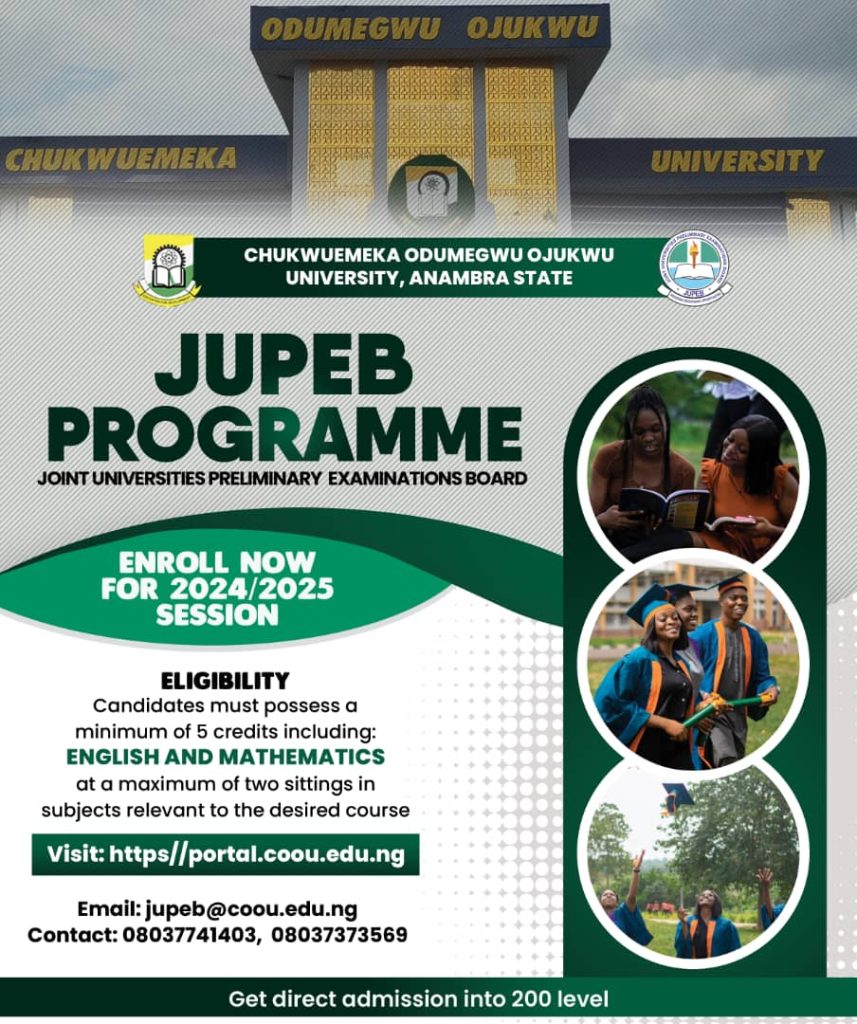- Vacancy
- Blackboard
- Students’ Portal
- COOU Mail
- About Us
- Campuses
- TETFund Interventions
- Special Intervention
- Annual Intervention
- Physical Infrastructure/Program Upgrade
- Academic Staff Training & Development
- Library Development
- Conference Attendance
- Teaching Practice
- Institution-Based Research
- ICT Support
- Academic Research Journal
- TETFund Project Maintenance
- Equipment Fabrication
- Entrepreneurship
- Academic Manuscript Development
- eLibrary
- eLearning
- More
- Home
- Administration
- Academics
- Faculties
- Faculty of Agriculture
- Faculty of Arts
- Faculty of Basic Clinical Sciences
- Faculty of Clinical Medicine
- Faculty of Education
- Faculty of Engineering
- Faculty of Environmental Sciences
- Faculty of Health Sciences & Technology
- Faculty of Law
- Faculty of Management Science
- Faculty of Basic Medical Sciences
- Faculty of Natural Sciences
- Faculty of Pharmaceutical Sciences
- Faculty of Physical Sciences
- Faculty of Social Sciences
- Admissions
- Journals & Conferences
- Journals
- COOU Journal of Multidisciplinary Studies
- COOU Journals
- African Journal of Environmental Research
- Journal of Psychology and Behavioural, COOU
- International Journal of Innovative Engineering Technology
- COOU Journal of Physical Sciences
- Tropical Journal of Applied Natural Science
- Oriental Journal of Science and Engineering
- Conferences
- Journals







